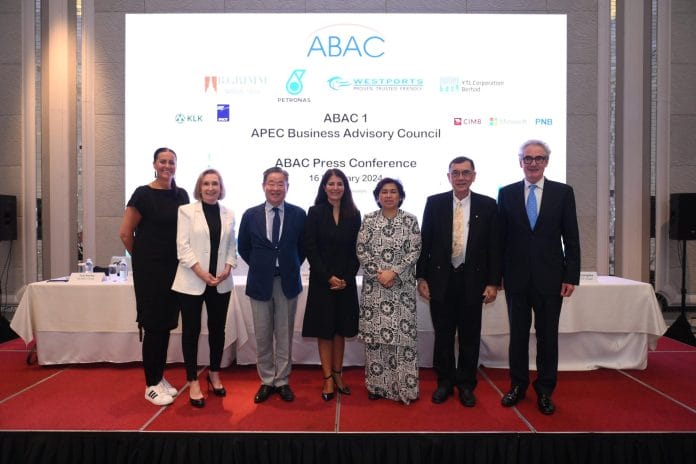Over the last two years, Malaysians have been confronted with many terms in relation to economic and geopolitical tensions which have raised concerns over currency fluctuations, balance of payments, trade and digital trade coherence, responsible artificial intelligence, supply chain disruption, sustainability, human resource development and climate change. These have created a challenging world economic landscape.
These issues have been taken seriously by the Malaysian government which has implemented new plans and policies such as the National Energy Transition Roadmap (NETR) and New Industrial Master Plan 2030 (NIMP 2030) to reduce these external factors and to support the domestic economy.
The International Monetary Fund (IMF) recently said the global economy has begun its final descent towards a soft landing, with inflation declining steadily and growth holding up. But the pace of expansion remains slow, and turbulence may lie ahead.
Global activity proved resilient in the second half of last year, as demand and supply factors supported major economies. On the demand side, stronger private and government spending sustained activity, despite tight monetary conditions. On the supply side, increased labour force participation, mended supply chains and cheaper energy and commodity prices helped, despite renewed geopolitical uncertainties.
“This resilience will carry over. Global growth under IMF’s baseline forecast will steady at 3.1 percent this year, a 0.2 percentage point upgrade from our October projections, before edging up to 3.2 percent next year,” IMF said on economic growth on Jan 30.
Chief Statistician Malaysia Dato’ Sri Dr. Mohd Uzir Mahidin recently said despite facing global market uncertainty, Malaysia’s economy is expected to sustain moderate growth, supported by the resilient performance of domestic-oriented industries. There exists a slight uptick from the previous quarter with 3.3 percent. Notably, the Services sector retained its position as the primary driver of economic performance during this period, with positive growth observed across all other sectors.
What’s being done
Business and governments must come together to work exclusively to create a prosperous, sustainable and a stable future for our community.
Interdependencies between economies mean that fraying economic ties within nations would be costly, especially for Asia, where, for example, about half of the imports in the United States and a third in Europe come from Asia. And, in turn, Asian countries account for almost half of global demand for key commodities.
The prospect that strategic competition and national security concerns may trump the shared economic benefits of global trade.
Recognising the integral role of business and the value of representative business advice on key issues, APEC leaders established the APEC Business Advisory Council (ABAC) in November 1995.
The APEC Business Advisory Council is the private-sector arm of the Asia-Pacific Economic Cooperation. The main mandate of this council is to advise leaders and other APEC officials on issues of interest to business. ABAC also responds to requests from various APEC sub-groups for information about the business perspective of specific areas of cooperation.
At a recent meeting in Kuala Lumpur, a panel of international business leaders discussed Digital Innovation which was seen as an incredible opportunity to engage next generation youth and talent skills development to create pathways and fully take advantage of digitisation.
Digital and Innovation Task Force (DITF) chair Jan De Silva said: “We’re not doing research from a blue-sky perspective, we’re looking at programs that are already working around the world, and determining which ones who can stand up as pilots to really help our businesses connect globally using digital tools to have greater market access.”
“We’ve many AI expertise who are now looking at the impact of AI at key jobs across the region. I think there’s a lot of fear about jobs being lost because of AI, I think the research is showing that less than 1% of existing jobs will face disruption. Also, there’s lots of other jobs where AI will complement or improve productivity.
“So, we are looking at what skills development programmes we can put in place? And, what are the AI applications we can put in place to give our economies, our workers, our businesses, a competitive advantage in the marketplace?” she added, “more importantly, how do we take full advantage of AI to create tremendous opportunities for businesses for our next generation of talent?”
She said ABAC is trying to achieve a work plan towards collaboration across the 21 member APEC economies by putting people first in terms of prosperity, because it starts with an energised workforce.
Human development issues have also received priority this year to bring the insights of business leaders, for example to see improvements in the patient and healthcare systems. There is also need to improve elements of the social contract towards the application of new technologies, digitisation and AI.
Aspects of human skills and the reality of financial inclusion, in which ABAC has a year-long work programme to explore new methods and sub headers, will be referred to global leaders and ministers in dealing with new ideas.
Consequently, Hiroshi Nakaso of the Finance and Investment Task Force (FITF) said their work this year would focus on digitalisation, sustainability and inclusivity. These are key areas being watched across many industries, not to the mention policymakers. As a Business Advisory Council, they would come up with detailed work plans based on what works today and these will be placed as recommendations to global APEC leaders.
Ning Gaoning of the Sustainability Working Group (SWG) said there are two areas fighting for security, under which they need to formulate recommendations on how to increase productivity, food produce and technology transfer. A strong point here is there is a critical need for nations to join hands in aspects of free trade on food produce to improve the entire chain of food security.
Under sustainability, climate change and new energy forms, the SWG is looking into developing new ideas in the areas of green finance which needs policy support. Work is underway to formulate renewed measures to reduce fossil fuel consumption while promoting Electric Vehicles (EVs) by November this year.
ABAC 2024 Chair Julia Torreblanca (Peru) said the world dealt with a pandemic which slowed things down. Interest rates have been high around the world, which has curtailed investment. But if you look at Asia, against other parts of the world, this is still an incredibly high growth environment. So, we’re really trying to take advantage of what’s new and what’s next and to apply it to help the region, businesses and its workers.
ABAC is a private-sector body which presents recommendations to APEC leaders in an annual dialogue and advises APEC officials on business-sector priorities and concerns. ABAC meets four times a year.
The Asia-Pacific Economic Cooperation (APEC) is a forum of 21 Asia-Pacific economies. APEC’s member economies are home to more than 2.9 billion people and make up over 60 per cent of global GDP.
APEC was formed to encourage a growing and prosperous regional economy through trade and investment liberalisation and facilitation – at the border, across the border and behind the border; reduced costs of cross-border trade to assist businesses economic and technical cooperation; exchanges of best practice information on trade and investment; simplified regulatory and administrative processes; seek improved institutional capacity to implement and take advantage of the benefits of trade and investment reform.
ABAC 2024 Chair is Julia Torreblanca (Peru) and the Co-Chairs are Dominic Ng (USA) and Hyunghee Lee (Korea), with three (3) working group chairs, namely: Rachel Taulelei, Regional Economic Integration Working Group (REIWG); Ning Gaoning, Sustainability Working Group (SWG); and Tom Harley, Human Development Working Group (HDWG); and two (2) Task Force Chairs, namely: Jan De Silva, Digital and Innovation Task Force (DITF); and Hiroshi Nakaso, Finance and Investment Task Force (FITF).
Today, APEC’s work is guided by the APEC Putrajaya Vision 2040, which is for an open, dynamic, resilient and peaceful Asia-Pacific community by 2040. This will be achieved by pursuing three economic drivers, namely, trade and investment, innovation and digitalisation and strong, balanced, secure, sustainable and inclusive growth.
APEC’s 21 member economies include Australia; Brunei Darussalam; Canada; Chile; People’s Republic of China; Hong Kong, China; Indonesia; Japan; Republic of Korea; Malaysia; Mexico; New Zealand; Papua New Guinea; Peru; The Philippines; The Russian Federation; Singapore; Chinese Taipei; Thailand; United States of America; and Vietnam.
ABAC was created by APEC Leaders in 1995 to be the primary voice of business in APEC. Each economy has three members who are appointed by their respective Leaders. They meet four times a year in preparation for the presentation of their recommendations to the Leaders in a dialogue that is a key event in the annual Leaders Meeting.
Under Peru’s leadership, ABAC is pursuing a work program under the theme “People. Business. Prosperity. ”to respond to the challenge of maintaining the economic vitality of the Asia-Pacific Region and ensure it benefits all.









